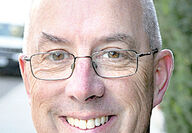Sorted by date Results 1 - 11 of 11

It turns out that, as we have been saying for years, honeybee populations aren’t declining, but are actually increasing. A recent article in Vox notes that the talk of honeybees disappearing was “greatly exaggerated.” Admitting that his previous stories predicting the collapse of honeybee populations hadn’t aged well, the reporter explained that a recent agricultural census found that the 31 percent increase in honeybees since 2007 is “a larger increase than any other dom...

The legislative session is over, and it had the potential to be very positive for salmon recovery. There was bipartisan support for habitat restoration. Legislators also had a huge amount of money to allocate because the tax on CO2 emissions generated far more money than anticipated. Despite that, the Legislature failed to make significant progress on salmon. It is one more wasted opportunity to protect an iconic state species. The most glaring example of the failure is in...

Washington’s State Building Code Council has once again adopted rules designed to eliminate natural gas energy for new residential and commercial construction. The original proposal was modified when a similar regulation adopted by the city of Berkeley, Calif., was overturned by the U.S. Ninth Circuit Court of Appeals. Like the previous version, the new rules were pushed through the process without providing adequate information about the costs of the new regulations. For exam...

As the cost of the state's climate law continues to increase gas prices, members of the Inslee Administration are upset when the cost of the CO2 allowances are referred to as a "tax." The governor and others have resorted to convoluted language and logic to avoid using that politically powerful word. For example, the governor's spokesman Mike Faulk recently wrote, "the cap and invest program is not a 'carbon tax'," but "requires emitters to purchase ... permits for their emiss...

The state held its special auction for CO2 allowances two weeks ago. When the results were announced, they indicated higher gas prices may be coming. As part of the state’s new tax on CO2 emissions, known as the Climate Commitment Act, organizations that emit CO2, like BP or Washington State University, must purchase permits for every metric ton of CO2 emitted by their operations or products. There are a limited number of permits available. So, the price is set at an a...

Relying on increased wind and solar is likely to increase electricity costs for residents in Washington and Idaho, and make electricity less reliable. Advocates of wind and solar frequently point to is the claim that the fuel is “free.” That claim ignores the extremely high up-front cost of those energy sources. To account for that, energy analysts create a “levelized cost of energy” to compare between energy that has low costs up-front but has ongoing costs for the fuel ...

On Earth Day this year, I will be planting two trees in a local park. This is not a political act. And yet, there are many who will see it that way because it occurs on a day politicians and environmental activists – especially on the left – have appropriated for political purposes. By filtering environmental stewardship though the distorting lens of politics, we are losing the ability to enjoy the beautiful creation around us, making it more difficult to take actions tha...

Here is a simple question: How should we measure the success of climate policy? The answer should be, “By maximizing CO2 reduction for every dollar spent.” This smart approach is standard practice for many private companies. Both Microsoft and Amazon spend on projects that are the fastest and most effective at reducing their impact on the climate. For example, a government subsidy for rooftop solar in cloudy Western Washington costs about $200 to reduce one metric ton of CO2...

For the people living in the Lewis-Clark Valley on the Snake River, Gov. Jay Inslee’s report on destroying four dams tries to offer some solace. After a “thorough review of relevant economic reports and conversations with experts,” the report’s authors have some ideas about how to offset the serious harm that would be done to the community. Reading the vague assurances from the report reminded me of another community hit by the harmful economic impacts of environ...

Contrary to recent claims that Snake River Spring Chinook runs are on the path to extinction, returns increased for the second year in a row, continuing the recovery from the recent low point in the population cycle. The Spring Chinook salmon run for the Snake River concluded yesterday, with more than 29,634 salmon passing the Lower Granite Dam. This is a 27 percent increase from 2020 levels and 55 percent larger than 2019 returns. That number is also only 495 Chinook short...

The poor are oppressed by the incompetent. It is a phrase that increasingly rings in my ears as I watch government bureaucracies and politicians provide false hope instead of tangible assistance. The people who pay for these failures are often those who can least afford it. The examples in my home state of Washington are numerous, but are not unique. My friend Kim Ngan came to the United States from Vietnam, and although she didn’t speak much English, she knew there was o...